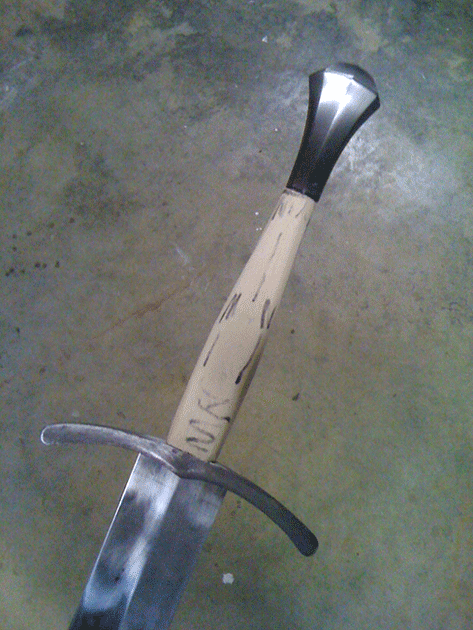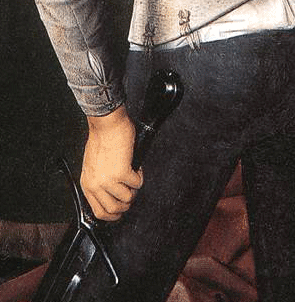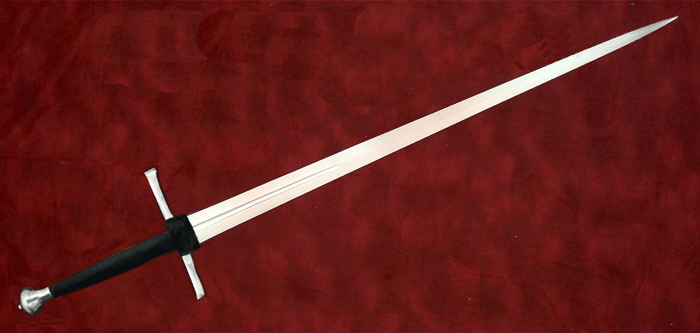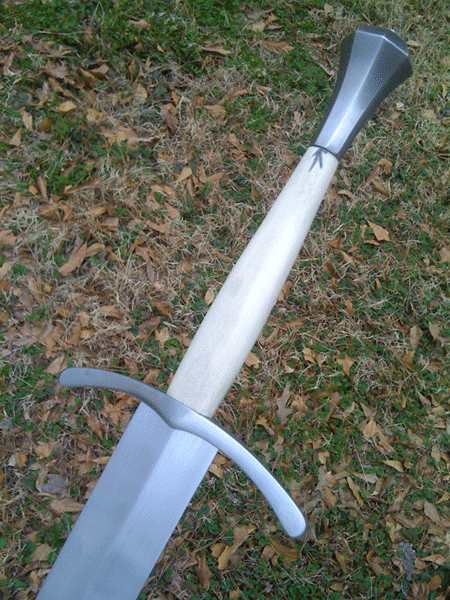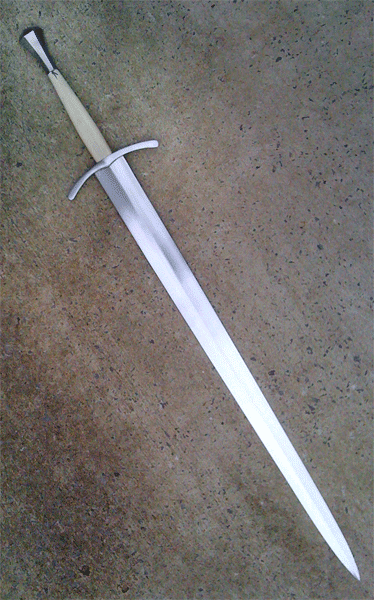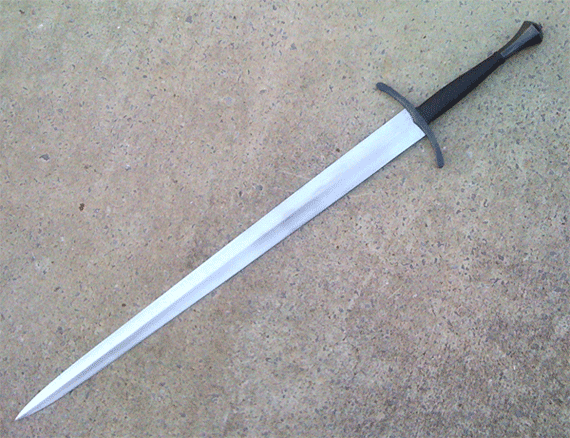Blade is Windlass Erbach Sword. Pommel is Windlass Towton. Guard is courtesy of an Anonymous Benefactor. Took quite a while to assemble everything I needed for this one, but it's working out quite well. What you see here is the roughed-out grip marked for further refinement (I've finished that process since taking this photo). The guard is pretty much the shape it's meant to be but still very roughly finished. The pommel still needs to lose just under 25" from the base. There's a bit of distortion in this cell phone photo but you get the idea.
Everything is close enough to its finished state that I can get a reasonable estimate of balance--just under 3". I'd be happy if it had slightly more blade presence but the Windlass blades are pretty thin. That's not a terrible thing for a broad, late Type XVIII and it does feel good in the hand. It's not a huge sword--only about 44" overall.
Hilt furniture will be blued. I'll make an appropriate scabbard immediately after finishing the sword.
This project is inspired by two swords depicted by Hans Memling, ca. 1480. The first is in the androgynous paw of the Archangel Michael. I won't bore you with the different measures I've taken from this image in an attempt to develop a biometric guide to the sword's proportions. Suffice it to say that what looks perfectly natural on canvas can leave you scratching your head when you try to apply it in three dimensions. I have tried to get as close as possible to the Memling sword in terms of proportions, although I accept some of the discrepancies you see here--pommel shape, curvature of guard, blade type (Memling's appears to have a fuller and is more acutely pointed). I think the Memling sword would weigh significantly more, too (I estimate mine to be a bit over 2lbs.) but possibly with similar balance. My aim during this project has been to make historically / culturally / technically appropriate choices inspired by the painting--not to try and copy the weapon exactly.
The all-black color of the Memling sword bugs me. As far as I can tell, decorative bluing of entire blades was still decades away and in any case this doesn't look decorative. Tarnished silver pigment is one possible explanation. In that case, the whole sword might originally have been bright. Another Memling sword helped me decide that bluing of the hilt is a plausible middle way. This one, from Memling's Altarpiece of St. John shows a similar long-gripped sword with relatively short blade. The blade in this case is bright while the hilt is blued. There's plenty of information to savor there, but for me the most important details are what appear to be silver or steel turk's head knots at the ends of the grips. They're silver-colored. The hilt is black. I therefore conclude that Memling did mean to depict black hilt furniture in this case, at least. This doesn't resolve the question about the color of the sword in the first example.
